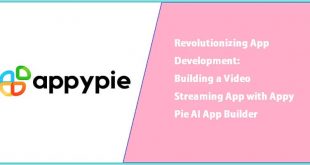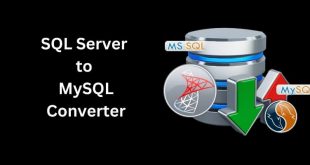Hey guys, in this article, we will discuss the 8 payroll trends that are expected to remain relevant in 2024. So keep reading.
The year of the pandemic, i.e. 2021, brought several lifestyle and workplace changes that transformed our lives completely. Almost every employee working in an office was forced to work from home, and entire business districts were shut. The fear of contracting COVID-19 prevented people from leaving their homes for even the most basic of activities.
The year 2020 has inevitably led the business world to catch onto certain trends that are a result of alternatives being explored in the wake of a flood of remote workers. The remote working culture has not only affected the way a workplace functions, but also the way an employee is managed by their company.
One aspect of the workplace that we will explore is payroll. Where almost 82% of all companies found the pandemic challenging in terms of accessibility to payroll as per an ADP report. In the article, we focus on payroll trends that have become an inalienable part of our work lives and we shed light on some payroll technology that has helped manage employees smoothly. Finally, we talk about which payroll trends are going to remain relevant in the year 2023.
List of The 8 Payroll Trends for 2024:
4: Spreadsheets Becoming Obsolete
5: Self-service
7: Integrations
1. Cloud Payroll
Cloud-based applications are increasingly becoming one of the most popular choices for businesses across the world. The idea that payroll can be managed and accessed from anywhere in the world without the requirement of physical access to computer systems has led many companies to migrate to cloud technology.
More importantly, the pandemic has compelled most businesses to resort to such alternatives due to the inaccessibility of a physical workspace. HR managers and accounts professionals are able to deliver payments and other benefits to employees without having to interact physically. The process is extremely smooth and can be executed with high levels of efficiency and little to no system errors.
One of the biggest advantages of cloud payroll remains accessibility. Due to the user being able to access data from anywhere, information about the employee can also be sent out on demand. The employee can receive and comment on information sent over by the relevant teams over the cloud system without the need to be physically present at the workplace.
2. AI For Payroll
Artificial intelligence and machine learning are taking most industries by the storm, and payroll is not far behind. Payroll technology has been integrating AI into their systems for quite some time now, and the systems are only becoming more efficient and robust. Software integrated with AI can be programmed to ensure that all the correct data such as tax codes and benefits are calculated automatically through the use of predefined parameters, leaving little room for errors.
AI has been helping payroll in terms of accuracy of information and execution of functions smoothly. The technology has helped payroll software perform a number of activities such as payment processing, curtailing expenses, and managing timesheets without the need for human intervention.
The use of AI in the workplaces, especially with cloud-based QuickBooks payroll software, has increased efficiencies multifold and created a safer environment for employees and employers alike. The technology saves immense costs both in terms of operations and potential errors that could have been caused due to human intervention.
3. Remote Approvals
In instances where an employee required the approval of timekeeping reports, the need for a system that can do the same without requiring physical presence is very important. The year 2021 will continue to witness the use of payroll technology to approve employee’s reports remotely. Employees working from home need to ensure that their working hours are accurately clocked in, and since there is no floor manager to ensure that employees are putting in the hours they are supposed to, a remote approval will thrive as employees clock in and clock in out from their homes.
Remote approvals would also ensure that timesheets that are sent in by the employees are approved faster and more accurately. Working from home has led employees to be fluid with their working hours, and timesheets have become a necessity to make sure that all employees are being paid for the work hours that they are putting in.
The remote approval process is relevant to both the employee and the employer. The employee will benefit from it by receiving just remuneration more efficiently. The employer will benefit from it in terms of the management of employees and ensure the accuracy of timesheets, to prevent businesses from spending more than they ought to.
4. Spreadsheets Becoming Obsolete
The use of spreadsheets in managing payroll is largely becoming a redundant activity. Spreadsheets may have been the pinnacle of management tools somewhere around a decade ago, however, the development of advanced management software has driven its use out of fashion. The development of payroll software that is programmed to serve a specific need is more efficient and reliable than spreadsheets.
Payroll technology can improve access to information by the employee and employer, presenting information in a more legible fashion as compared to a spreadsheet which is a complicated data structure to decipher and require high levels of attention to make sure that all information is understood correctly.
The use of aesthetics, intuitive UI, and improved UX have helped create a growing market for payroll technology which has become more inviting towards business to transcend from the traditional use of spreadsheets to software. Spreadsheets are efficient, however, dedicated software for payroll is unbeatable in terms of ease of access.
5. Self-service
Payroll technology, especially cloud-based payroll, has enabled most companies to make their payroll processes more efficient. Employees can be given access to payroll software online to execute certain functions such as time management. The employees can use the software to perform a variety of functions themselves which were previously performed by HR professionals.
The use of self-service in payroll allows businesses to save unnecessary labor costs and reduces the occurrence of disputes between the employee and employer. The self-service tools allow employees to access and enter definitive information, leaving little to no scope of miscommunication.
Self-service also allows businesses to delegate duties related to the employees to be performed by themselves while letting HR departments focus on other aspects of the business and only step in when there is an issue with the data of an employee. This creates a trusting environment in the workplaces and enables smooth functioning of the HR department while maintaining cordial communications with all the employees at a company.
6. Pay Transparency
The transparency of payment data of employees has always been a topic of contention, however, it is important to ensure fair pay policies. The use of payroll technology allows employees to maintain transparency with the remuneration that they receive, along with an understanding of the standard of remuneration and benefits received by other employees working in a similar role.
More people are becoming conscious of fair remunerations, and payroll technology has helped employees achieve just that. The use of such software can create a healthier work environment and give employees the leverage to command justified pay and benefits. The technology helps create equal opportunities between different genders due to the large pay gap that exists between men and women in the workplace.
7. Integrations
The use of cloud-based payroll has helped businesses integrate a number of additional capabilities with existing software to ensure the performance of multiple functions through a unified platform. The integration of add-ons with the payroll software and even the integration of payroll software with CRM software is an important tool that can help businesses ensure that employees are managed with the highest levels of efficiency.
Integrating payroll without other software can help HR and other departments gain access to important information in real-time and distribute benefits and pay accordingly. Especially in instances of customer relations, the use of payroll integration can help employees register commissions in real-time as against the calculation of commissions data at the end of the payment cycle creating room for errors.
8. Time Collection
The work-from-home culture has made it extremely difficult to manage employees. Where once employees used to come into the office space and work through their designated hours, there is little oversight as far as working hours are concerned. Collecting time information is an important task for companies, as this is the parameter that they use to disburse payment and benefits.
The use of cloud-based payroll software has created an opportunity for businesses to be able to manage their employees even in remote locations, without the need to communicate with them at all times. The software can be used by employees and employers, giving both parties enough opportunities to minimize disputes and resolve queries without any hassles.
Final Thoughts
Payroll is a critical region to operate in a company. The payroll system derives its importance from the need of businesses to ensure employee satisfaction and management. In today’s technologically reliant world, the use of an advanced system to manage the payroll of employees creates a healthier environment between the company and employees.
Lockdowns and curfews around the caused offices to cease physical operations and gravitate towards a remote working culture. Major organizations around the world have declared permanent remote working opportunities, allowing companies to save costs and employees to save time.
In terms of payroll technology, the world has seen a major shift from the traditional use of rudimentary software for disbursement of pay, to the use of advanced tools to ensure that employees are given the best access to information, and all their payments are justified and accurate.
 Free Web Resources , psd, mockups, & web templates Best WordPress Themes & Best Html Templates
Free Web Resources , psd, mockups, & web templates Best WordPress Themes & Best Html Templates








